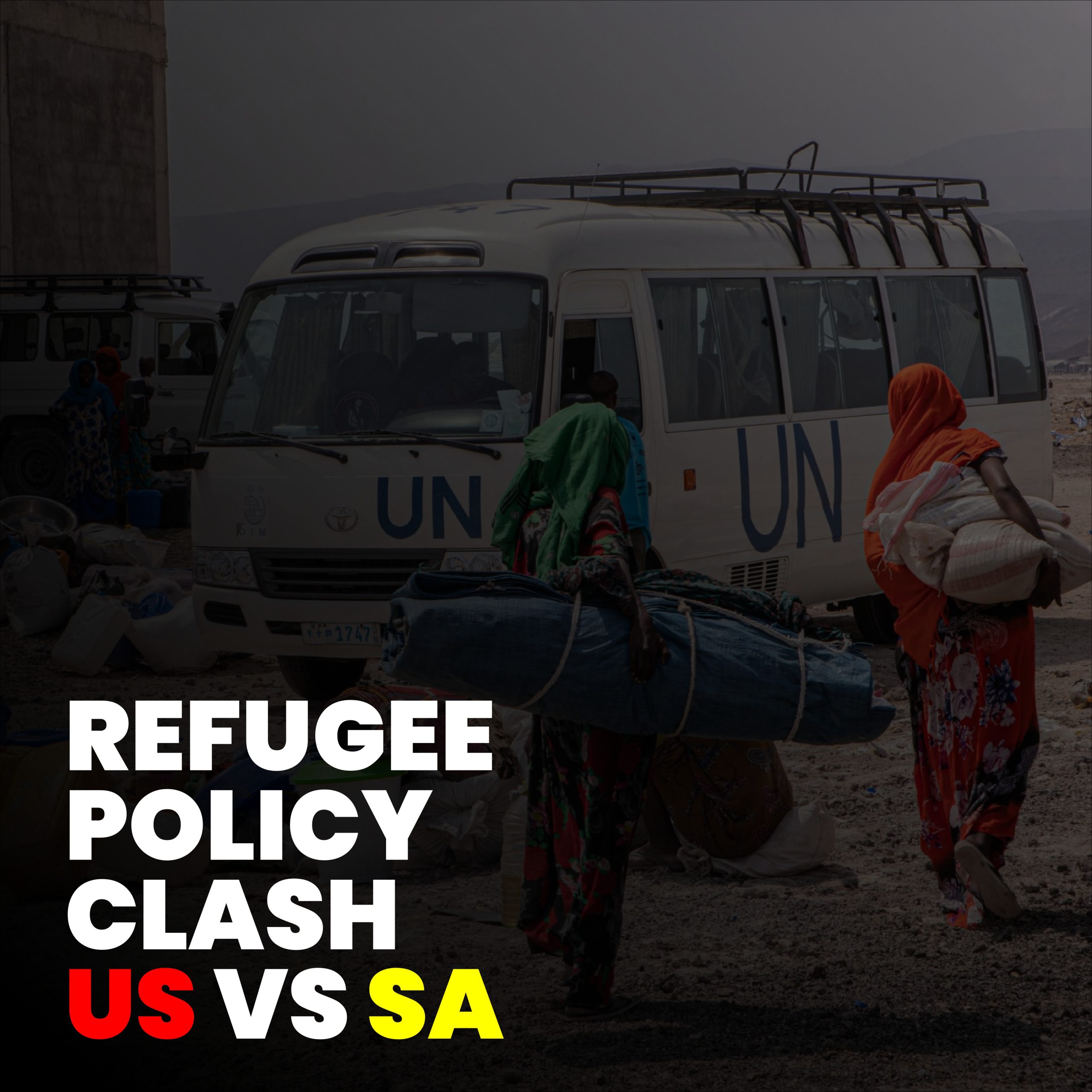Introduction
The Refugee Policy implemented by the United States to prioritize white South Africans has sparked widespread attention and controversy. With a significant reduction in the refugee admissions cap for 2026, critics argue that this approach introduces racial considerations into humanitarian programs, challenging established norms. South Africa has publicly rejected these claims, stating that the nation’s land reform policies are not racially motivated and emphasizing sovereignty concerns. Civil society organizations, human rights advocates, and international observers have expressed concern about the ethical and diplomatic implications of this policy. This Refugee Policy debate highlights the tension between domestic U.S. priorities and international humanitarian obligations, making it a topic of global relevance.
Refugee Policy: U.S. Admissions Cap
The U.S. has lowered its refugee admissions cap to 7,500 for fiscal year 2026, down from 125,000 previously. The policy directs a majority of these admissions toward white South Africans, citing alleged persecution. Critics argue this approach undermines neutrality in humanitarian programs, potentially marginalizing other vulnerable populations. Supporters claim it addresses a specific group facing threats. The Refugee Policy has drawn attention for introducing race-based selection, raising legal and ethical concerns about how refugee programs are administered and the influence of political considerations on humanitarian decision-making.
Refugee Policy: South African Government Reaction
South African authorities have strongly opposed the policy. Officials, including President Cyril Ramaphosa, emphasized that claims of racial persecution are inaccurate. Land reforms are aimed at addressing historical inequities, not discriminating against any group. Government representatives criticized the U.S. approach as politically motivated and potentially damaging to bilateral relations. Civil society groups also voiced concern, noting that singling out white South Africans could exacerbate social tensions and misunderstandings. The Refugee Policy controversy has become a focal point in South Africa’s domestic and foreign policy discourse.
Refugee Policy: Humanitarian and Ethical Concerns
International human rights organizations argue that prioritizing one racial group contradicts principles of fairness and universality in refugee protection. Critics suggest that the policy could set a precedent for race-based admissions in other regions, undermining global humanitarian standards. Ethical concerns also include transparency, accountability, and impartiality in refugee selection. The Refugee Policy raises questions about balancing national interest with moral obligations, emphasizing the need for equitable and inclusive criteria that respect international humanitarian law.
Refugee Policy: Diplomatic Tensions
The policy has strained U.S.-South Africa relations, raising questions about sovereignty and mutual respect. South African officials argue that the U.S. mischaracterized domestic policies and undermined trust between the countries. Analysts suggest this could have implications for bilateral trade, security cooperation, and regional diplomacy. The Refugee Policy illustrates how domestic policy choices in one country can have significant diplomatic consequences, impacting broader international relations and foreign policy dynamics.
Refugee Policy: Social Implications in South Africa
Local experts warn that prioritizing white South Africans could influence societal perceptions and potentially fuel xenophobia. Media coverage and public debates have heightened sensitivities around race, land reform, and historical inequities. Civil society organizations argue that the Refugee Policy could inadvertently create divisions, prompting misinformation and tension among various communities. Analysts stress the importance of balanced communication and public engagement to manage social impact and avoid exacerbating historical or social fault lines.
Refugee Policy: Political Responses
Political leaders and parties in South Africa have expressed varying perspectives on the U.S. decision. Some criticize it as interference in domestic matters, while others focus on the humanitarian aspect of resettlement. In the U.S., lawmakers and commentators have debated the fairness and ethical justification for prioritizing a specific racial group. The Refugee Policy has therefore become a political flashpoint, highlighting how refugee programs intersect with national interests, racial considerations, and international diplomacy.
Media Coverage
Global and local media outlets have extensively reported on the policy. Coverage emphasizes the racial element, public reaction, and international criticism. Headlines often highlight the preferential treatment of white South Africans, prompting discussions among experts, commentators, and human rights advocates. Media framing can influence public opinion, shape perceptions of fairness, and affect diplomatic relations. The Refugee Policy debate illustrates how news coverage can amplify tensions and inform global discourse on refugee protection standards.
Legal Considerations
Legal experts question whether the policy aligns with international conventions on refugee protection. The 1951 Refugee Convention emphasizes non-discrimination and fairness, which critics argue may be compromised. The Refugee Policy raises concerns about the legality of introducing racial preferences, transparency in selection criteria, and the potential marginalization of other vulnerable populations. Legal and ethical analyses highlight the importance of adhering to international standards while balancing national interests.
Global Implications
The policy could affect refugee resettlement programs worldwide. By prioritizing one racial group, the U.S. risks criticism from international partners, human rights organizations, and multilateral institutions. Other countries may reconsider cooperation with U.S. programs, impacting refugee resettlement, humanitarian aid, and diplomatic relations. The Refugee Policy may influence global expectations about fairness, equity, and transparency in refugee management, potentially setting precedents for future admissions policies.
FAQs
What is the Refugee Policy announced by the U.S.?
The Refugee Policy prioritizes white South Africans for resettlement under the 2026 admissions cap.
How did South Africa react to the Refugee Policy?
South Africa criticized the policy as politically motivated and misrepresentative of domestic realities.
What are the global concerns regarding the Refugee Policy?
Experts warn that race-based prioritization could undermine fairness, humanitarian standards, and international norms.
Conclusion
The Refugee Policy announced by the U.S. has prompted global debate over race, humanitarian ethics, and diplomacy. By prioritizing white South Africans, the policy raises questions of equity, legality, and international perception. South Africa has rejected claims of systemic persecution, emphasizing sovereignty and historical context. Civil society, human rights organizations, and diplomats highlight the ethical and social implications of selective refugee admissions. Understanding this Refugee Policy is crucial for policymakers, analysts, and the public, as its consequences extend beyond bilateral relations to broader global discussions on fairness and humanitarian standards.


